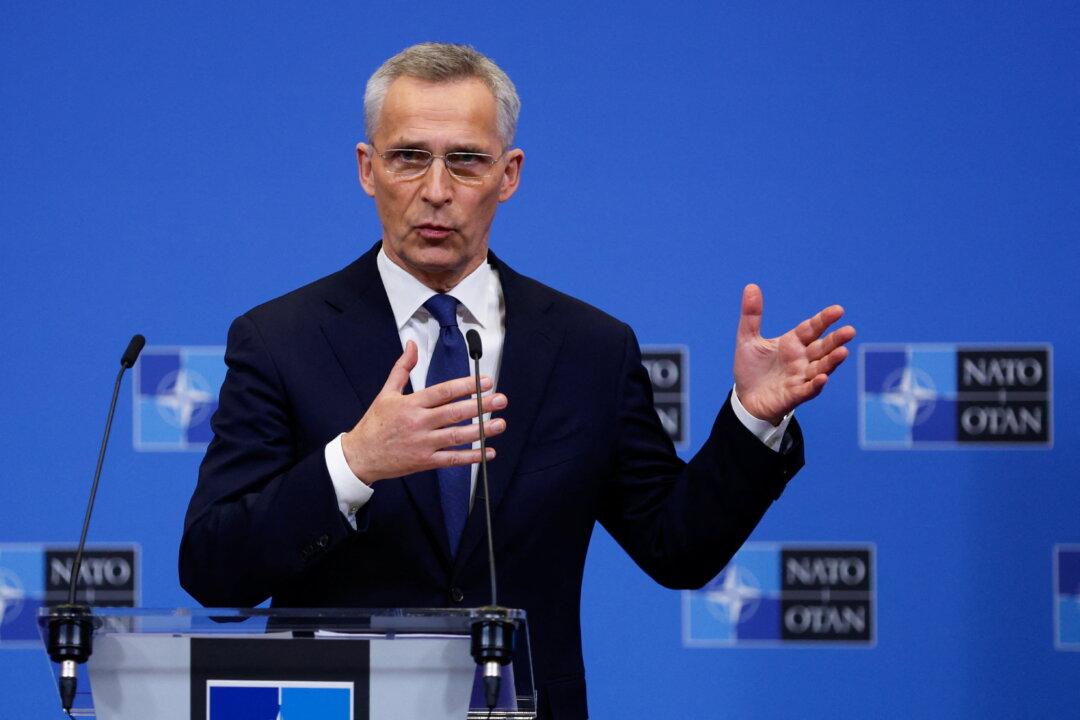NATO Secretary-General Jens Stoltenberg suggested that the military alliance may establish a permanent presence of troops on its eastern flank in response to Russia’s invasion of Ukraine.
“What we see now is a new reality, a new normal for European security. Therefore, we have now asked our military commanders to provide options for what we call a reset, a more longer-term adaptation of NATO,” Stoltenberg told The Telegraph this weekend. “I expect that NATO leaders will make decisions on this when they meet in Madrid at the NATO summit in June.”
Since the start of the conflict, which erupted on Feb. 24, the United States has increased its troop presence in Europe to more than 100,000. Meanwhile, NATO has since deployed about 40,000 troops to the eastern part of the alliance to countries such as Estonia, Latvia, Lithuania, Poland, Romania, Slovakia, Hungary, and Bulgaria.NATO is “in the midst of a very fundamental transformation” to deal with “long-term consequences for our security” following the conflict, Stoltenberg added in an interview.





